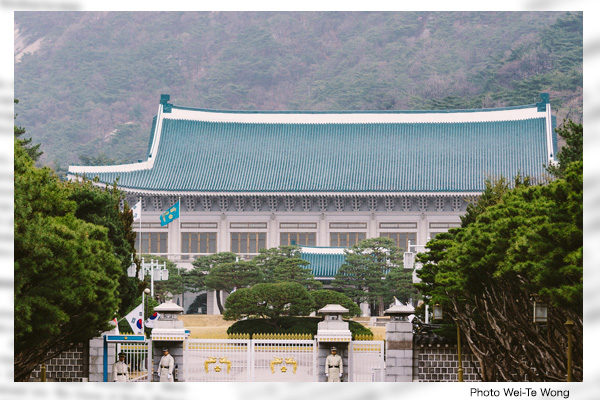South Korean voters will cast votes to elect their new president on March 9. Presidential candidates registered their candidacies on February 13 and 14 and launched official campaigns on February 15. Former Gyeonggi Province Governor Lee Jae Myung from the ruling Democratic Party of Korea is locked in a neck-and-neck race with former Prosecutor General Yoon Seok Youl fielded by the People Power Party, the largest opposition party. The race is too close to call.
A shocking proposal for a unified opposition candidate
Two variables have emerged at this stage of the presidential race. First, Yoon said he would launch an investigation into "deep-rooted evils" of the Moon Jae In administration if he wins. In response, President Moon in a statement demanded an apology from Yoon for the remark that Moon criticized as a political revenge. Citing the case of former President Roh Moo Hyun who committed suicide under pressure from prosecutors’ investigation into his alleged bribery after his retirement, the Lee camp claimed that Yoon was attempting to make Moon the second Roh Moo Hyun. The camp thus urged Moon’s ardent supporters who distance themselves from Lee to be united.
In a poll by the Korea Society Opinion Institute just after the spat, Lee won support from 40.4% of respondents, against 43.5% for Yoon, narrowing Yoon’s lead to 3.1 percentage points from 6.2 points in the previous week. Ahn Cheol Soo of the centrist opposition People Party got 7.8% and Sim Sang Jun of the ultraleft opposition Justice Party got 3.5%.
The second and largest variable is the potential for a unified opposition candidate. A focus of attention is whether Ahn with the third standing in polls would agree with Yoon on policies and a coalition government scheme and withdraw from the race. If such agreement comes, Yoon may become likelier to win the presidential election.
After filing his candidacy on February 13, Ahn abruptly proposed to select a unified opposition candidate through a poll. While the Yoon side appreciated the idea of a unified opposition candidate, it rejected the proposal for now, saying that Lee supporters might intentionally support less competitive Ahn in the poll to select a unified candidate. As the Yoon and Ahn camps are being engaged in an intensive backdoor bargaining and negotiation, it remains uncertain whether an unified opposition candidate is agreed on.
Yoon’s victory could lead to strong leftist resistance
If a Lee Jae Myung administration is born, not only further deterioration of Japan-South Korea relations but corrosion of U.S.-South Korea alliance is a matter of concern. This is because Lee is anti-Japan, distant to the United States, pro-China and subservient to North Korea. If South Korea distances itself from the alliance with the United States and sides with China and North Korea, the consequence will be the worst geopolitical crisis for Japan. This means that 600,000 South Korean forces may turn into an adversary just in front of Japan’s Tsushima Island. The dangerous Lee is supported by some 40% of South Koreans.
If a Yoon Seok Youl administration is born, deteriorated Japan-South Korea relations may improve somewhat or remain unchanged. But the U.S.-South Korea alliance will be repaired and most of Moon’s pro-Beijing and subservient-to-Pyongyang policies will be abandoned. Yoon will try to restore South Korea’s stance of countering the two totalitarian states of China and North Korea. But Yoon may face harsh resistance from leftists who account for almost two-thirds of the National Assembly and are widespread in all circles and groups in South Korea. Like former President Park Geun Hye, Yoon could be overthrown before the end of his term as president.
I regrettably predict that whatever the presidential election results are, Lee supporters who account for some 40% of South Koreans are likely to plunge the country into a more terrible situation.
Tsutomu Nishioka is a senior fellow and a Planning Committee member at the Japan Institute for National Fundamentals and a visiting professor at Reitaku University. He covers South and North Koreas.


